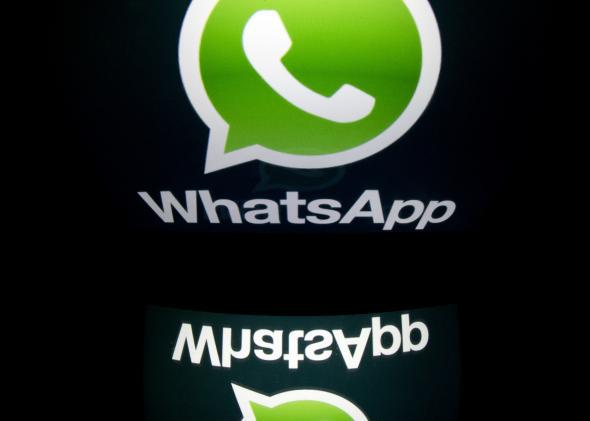Facebook just made its boldest business move ever, buying the mobile-messaging service WhatsApp in a deal worth some $19 billion in cash and stock. That’s six times what Google paid for Nest in January, and 19 times what Facebook paid for Instagram two years ago. It’s so much money that people found themselves reaching beyond the business realm for context. Development expert Charles Kenny compared the purchase price to the total annual lending of the World Bank.
The immediate reaction from the tech and business world was incredulity. “Do they also get the state of Florida?” one jokester asked.
As far as I can tell, Facebook does not get the state of Florida in the deal. What it does get is a five-year-old, Mountain View-based startup that has become one of the world’s most popular communication services in just the past year. WhatsApp was founded in 2009 by a pair of ex-Yahoo-ers who set out to build a better alternative to standard, SMS-based text messaging. It allows you to chat and shoot texts, pictures, and videos back and forth with friends over the Internet, like Apple’s iMessage, Microsoft’s Skype, BBM, or Facebook Messenger. Not only does WhatsApp have more features than SMS, it’s far cheaper—free for the first year, and just $1 a year after that. It’s particularly useful as a way to chat with friends and family overseas without running up big charges. It also has no ads, although that seems highly likely to change under Facebook ownership.
The downside is that you’re limited to talking to other people who have downloaded the app. The upside is that, unlike iMessage, it’s available on Android as well, so you’re not limited to fellow iPhone owners.
For Facebook, part of WhatsApp’s luster is that it has emerged as the most popular of a cadre of similar mobile messaging apps, including Japan-based Line, China’s WeChat, Korea’s KakaoTalk, and Canada’s Kik. Facebook likely sees it as the strongest bet to end up on top when the global mobile-messaging market eventually shakes out due to network effects. By the time it does, it may have subsumed a huge portion of the world market for text messaging. Right now WhatsApp has just 50 employees. With Facebook’s backing, it’s likely to have the resources to stay a step ahead of smaller competitors.
The speed of WhatsApp’s rise so far has been stunning. Last April, it had 200 million users. Since then, it has been adding some 25 million every month, and now boasts upwards of 430 million. Most of those are outside the United States, though it has a sizeable base stateside too. It’s said to be wildly popular in countries ranging from Spain to South Africa to Israel to India, boasting a reported 35 million users in India alone.
Within the U.S., it’s particularly popular among teens, a demographic that has famously soured on Facebook as a way to stay in touch. Teens clearly feel they can share things on WhatsApp, unlike Facebook, without their parents finding out about it. But the app’s appeal is hardly limited to young people. In a December blog post, WhatsApp co-founder, CEO, and soon-to-be-household-name Jan Koum boasted about some of the app’s more TED-talk-worthy uses:
Doctors in India are using WhatsApp to instantly send electrocardiogram pictures of patients who’ve suffered heart attacks, saving valuable time and potentially lives. In the mountains of Madrid, rescuers used WhatsApp to locate and save lost hikers. And today, as I follow the unfolding political crisis in Ukraine, the place where I was born and lived until the age of sixteen, I can’t help but hope that the next great WhatsApp story will be about people using the service to speak their mind and stand up for their basic rights.
So, sure, WhatsApp is a very promising and valuable startup. But is it really worth $19 billion? To most people in the world, no way. But if you happen to be running a company that’s valued at $173 billion and is terrified of losing its core business to mobile-messaging services, then you might start to think it’s worth just about whatever you have to pay.
